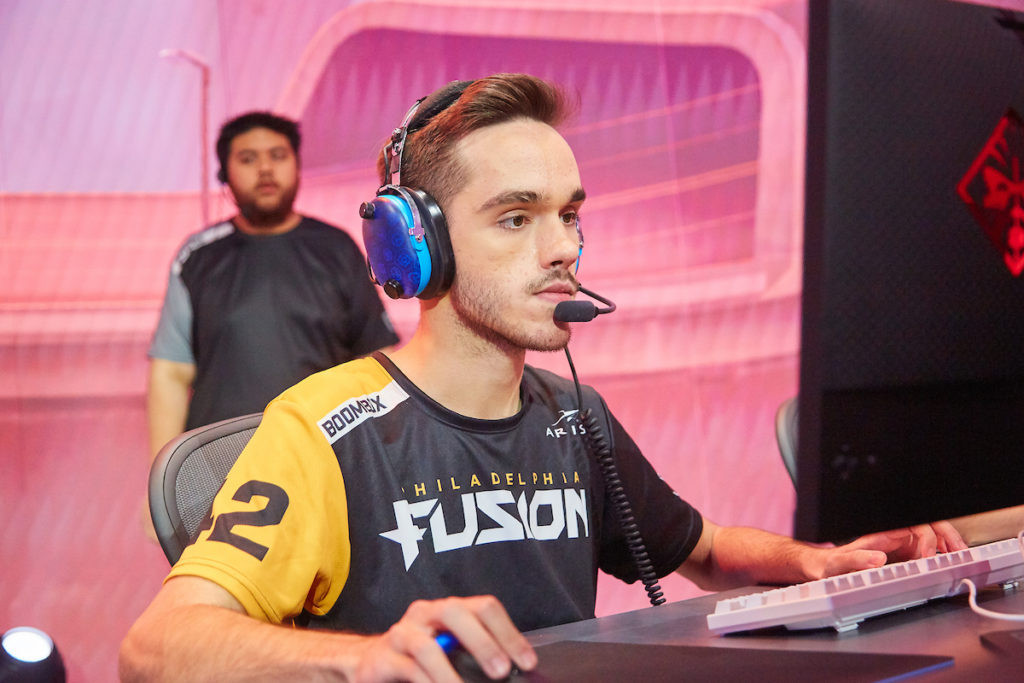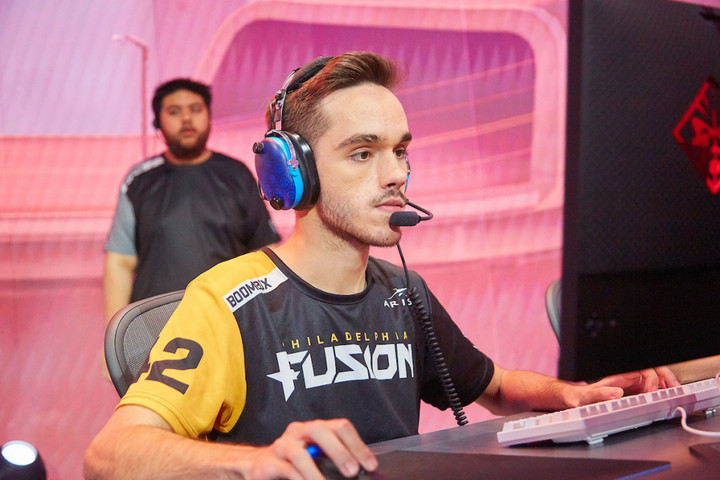With their win over the Boston Uprising this past weekend, the Philadelphia Fusion improved to 3-2 for Stage 3, giving them a winning record in this latest stretch of the season. Last season's Overwatch League runner-up has had an up-and-down second season to date, following a 5-2 Stage 1 with a rockier 3-4 Stage 2 performance.
Stage 3 started with a pair of back-to-back losses, but the team has turned it around since, compiling a trio of consecutive wins—two of them against the Uprising.
The latest of those didn't come easily, however: Saturday's battle against the Uprising went the distance, reaching a fifth tiebreaker map and a third round at that point, which the Fusion only reached via an unlikely come-from-behind win in the second round. It was a stressful match for viewers, and surely many times more so for the players.
https://twitter.com/Fusion/status/1145100364640919552
"It's not really that fun going to map 5, because it's a lot more pressure," says Fusion support Isaac "Boombox" Charles, who spoke with GINX Esports TV after the win. "We've kind of been used to it from last year, especially, where we ended up there a lot. But it was just a good match for us, we won."
During the match, Philly seemed to miss key chances to take over a fight and win rounds, as the commentators suggested, perhaps playing too passively to take advantage of some of the opportunities ahead of them. Boombox admits that some mistakes dragged the match out longer than they'd hoped, although the Fusion were ultimately able to seal the deal.
"I feel like we hadn't really practiced that much against their comps. We were just trying to figure out ways to deal with it," he says of the Uprising. "On the maps we lost, we had a lot of opportunities to actually win—but we messed up key, crucial fights, which then affected Ult economy. And then we would get held for longer than we usually would, so it wasn't really that ideal."
Boombox doesn't believe that there was any key turning point for the team ahead of the current win streak, although the decision to break out of the popular GOATS meta (in which teams use three tank heroes and three supports) might be paying early dividends.
"We just practiced more and tried to figure out our own play style and how we wanted to play stuff," he says about the team's decisions since the end of Stage 2. "I feel like we stopped being meta-slaves and playing GOATS, and just played whatever we thought was best in any situation, so we can play any comp."
2-2-2 and Philly

That could prove to be a smart, forward-looking move for the Fusion as the GOATS meta may soon be toast. Upcomer reports that Blizzard plans to implement a 2-2-2 "role lock" for the Overwatch League, forcing teams to choose two DPS heroes, two support heroes, and two tank heroes for each match. Recently-retired pro Chan-hyung "Fissure" Baek, who last played for the Seoul Dynasty, also confirmed the incoming move.
"I feel like 2-2-2 would be really good for us as a team, because we have two really talented DPS players. Forcing players to play DPS instead of GOATS would be an advantage," says Boombox. "I feel like the meta—I probably couldn't tell you what it would be right now, but a lot of heroes would need to be tweaked to be more viable in 2-2-2."
The GOATS meta has been widespread, but some fans think it's sucking the excitement out of fights. Boombox believes that the rumoured 2-2-2 move could restore some of those thrills: "With 2-2-2, there would be way more hype plays, DPS-enabling, and popping off," he says.
Looking even further ahead, the 2020 Overwatch League season will usher in local market play, with each of the 20 teams set to host matches in its home city. Boombox is excited about the prospect of seeing more of the world each week, instead of sticking around Los Angeles and only playing at the Blizzard Arena (aside from this season's homestand weekends).
"Last season there was no traveling, so it was a bit mundane. You're going to the same stage every time," he says. "Next year, if there's a lot more traveling, it'll be way more fun. You get to see more cities, experience more cultures, and play in front of a bunch of different crowds."
The Fusion will eventually play in Philadelphia's $50-million Fusion Arena, a stunningly-rendered space that's set to be the West's first dedicated arena for an esports team. However, it won't open until 2021, which means the team will have to temporarily play elsewhere for at least a season.
But even if next year's digs don't match the scale and hype of the incoming Fusion Arena, the Fusion know the infamous reputation of Philly sports fans. Will the city's esports fans be just as passionate?
"Philadelphia fans are always crazy in a good way – they're super into it. And it's really nice to play in front of somebody like that," says Boombox. "We've visited Philly several times, and it's amazing. None of us are even American players, and we've never played in Philly, but there's such a community there already and people who support us. It's really incredible."

 No ads, our video library,
No ads, our video library,
